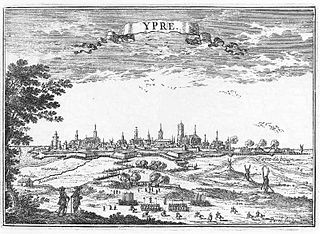 W
WThe Battle of Saint-Denis on 14 August 1678 was the last major action of the Franco-Dutch War, fought four days after France and the Dutch Republic signed the Treaty of Nijmegen on 10 August. The battle is generally viewed as inconclusive.
 W
WThe Dzungar conquest of Altishahr resulted in the Tibetan Buddhist Dzungar Khanate in Dzungaria conquering and subjugating the Genghisid-ruled Chagatai Khanate in Altishahr. It put a final end to the independence of the Chagatai Khanate.
 W
W"The Great Sleigh Drive" was a daring and bold maneuver by Frederick William, the Great Elector of Brandenburg-Prussia, to drive Swedish forces out of the Duchy of Prussia, a territory of his which had been invaded by the Swedes during the winter of 1678.
 W
WThe invasion of Rügen of 22 to 24 September 1678 was a military operation in the Swedish-Brandenburg War, or Scanian War, that ended with the annexation of the Swedish-ruled island of Rügen by the Allies: Brandenburg-Prussia and Denmark.
 W
WThe Revolt of the Three Feudatories, also known as the Rebellion of Wu Sangui, was a rebellion in China lasting from 1673 to 1681 in the Qing dynasty (1644–1912) during the early reign of the Kangxi Emperor. The revolt was led by the three lords of the fiefdoms in Yunnan, Guangdong and Fujian provinces against the Qing central government. These hereditary titles had been given to prominent Han Chinese defectors who had helped the Manchu conquer China during the transition from Ming to Qing. The feudatories were supported by Zheng Jing's Kingdom of Tungning in Taiwan, which sent forces to invade Mainland China. Additionally, minor Han military figures like Wang Fuchen and the Chahar Mongols also revolted against Qing rule. After the last remaining Han resistance was put down, the former princely titles were abolished.
 W
WThe Russo-Turkish War of 1676–1681, a war between the Tsardom of Russia and Ottoman Empire, caused by Turkish expansionism in the second half of the 17th century.
 W
WThe Scanian War was a part of the Northern Wars involving the union of Denmark–Norway, Brandenburg and Sweden. It was fought from 1675 to 1679 mainly on Scanian soil, in the former Danish and Norway provinces along the border with Sweden, and in Northern Germany. While the latter battles are regarded as a theater of the Scanian war in English, Danish, Norwegian and Swedish historiography, they are seen as a separate war in German historiography, called the Swedish-Brandenburgian War.
 W
WThe Siege of Stralsund was an armed engagement between the Electorate of Brandenburg and the Swedish Empire from 20 September to 15 October 1678, during the Scanian War. After two days of bombardment on 10 and 11 October, the severely devastated Swedish fortress of Stralsund surrendered to the Brandenburgers. The remainder of Swedish Pomerania was taken by the end of the year, yet most of the province including Stralsund was returned to Sweden by the terms of the Treaty of Saint-Germain-en-Laye and the Peace of Lund, both concluded in 1679.
 W
WThe Siege of Ypres in the Spanish Netherlands took place between March 18 and March 25, 1678, as part of the Franco-Dutch War, and ended with the conquest of the city by the French.